| ▻ |
You are looking at All Events sorted by Time on March 7
8:30 AM
Breakfast and discussion about how social is changing the way we do business. By invitation only. More info: http://socialmediatoday.com/smt-at-sxsw……
9:00 AM
Test drive a 2014 Chevrolet Volt, Sonic, Camaro, Impala, Spark, Equinox, Tahoe, Cruze Eco, or Malibu. Find Chevrolet on Trinity St. between Cesar Chavez and 2nd St. from Friday, March 7 through Saturday, March 15.……
10:00 AM

Presented by Publicis Groupe, the Digital Creative Job Market offers a convenient meeting spot for innovative thinkers and equally innovative companies. Bring your CV and your A-game and match your skills with 21st centu…
11:00 AM
Austin: the Breakfast Taco Capital of the World? Hell yeah it is! And why not? The people of Austin love their breakfast tacos; they love them in the morning, for lunch, when they’re hungover, at midnight, on the streets…
Beginner
Presenters
Mando Rayo
Almost every Monday night when the Vh1 reality show Love & Hip Hop Atlanta airs, its black and Latina characters, their actions and the title of the show dominate Twitter’s trending topics (they’re often seven of the 10 …
Advanced
Presenters
Lynessa Williams, Sherri Williams
ATTENTION: Priority Seating is available for this session. To take advantage of this opportunity, you will need to have a valid SXSW badge, and an activated SXsocial account. To get your priority seating, please go here:…
Intermediate
Presenters
Jon-Paul Jacques, Lizz Linabury, Scott Mills, Stuart O'Neil
Festival-goers can once again count on festival favorite, Catch A Chevy, to beat the heat and help them navigate the busy streets of Austin. Why walk when you can catch a complimentary ride in a wrapped Chevrolet Impala …
Attend an interactive workshop with the team responsible for bringing new apps to Chevrolet. Learn how to build apps for vehicles, discuss developer opportunities within Chevrolet, and demo a sample of in-vehicle apps. …
After years of speculation the next generation of gaming consoles have arrived, but does gaming's future belong to traditional publishers producing AAA games or have indie and mobile game creators and the advent of new b…
Intermediate
Presenters
Ben Howard, Casey Lynch, John Davison
Hackerspaces Unite! is a meetup and workshop for people interested in starting a hackerspace, people who have started a hackerspace, and people who are members of hackerspaces to pool ideas and share experiences. It's a …
Beginner
Presenters
Martin Bogomolni

Start your morning at SXSW Home Room. Introduced in 2013, Home Room sessions are part SXSW program information, part meet up. Each session is led by two Home Room Leaders who will help you get the most out of your day, …
Beginner
Presenters
Alix Morrow, Amanda O'Brien

Start your morning at SXSW Home Room. Introduced in 2013, Home Room sessions are part SXSW program information, part meet up. Each session is led by two Home Room Leaders who will help you get the most out of your day, …
Beginner
Presenters
Christopher Walton, Elizabeth Salazar
ATTENTION: You must signup in advance to attend this workshop. You will need to have a valid SXSW badge, and an activated SXsocial account. To reserve your seat, please go here: https://sup.sxsw.com/schedule/IAP22986 Mi…
Beginner
Presenters
Greg Stock, Lauren Titterud, Miles Parroco
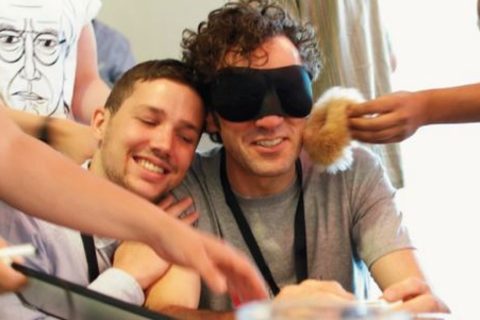
ATTENTION: You must signup in advance to attend this workshop. You will need to have a valid SXSW badge, and an activated SXsocial account. To reserve your seat, please go here: https://sup.sxsw.com/schedule/IAP23360 An…
Intermediate
Presenters
Alastair Somerville
Since that famous “Oreo Moment” that turned a Super Bowl blackout into a dubious marketing trend, more brands seem to have failed than succeeded at riding the real time zeitgeist. From Kenneth Cole to AT&T to Urban Outfi…
Intermediate
Presenters
Bryan Jones, Natanya Anderson, Noha Abdalla, Rick Wion

Video game development is a fast-paced and competitive industry. Having real-time access to the right data lets you turn on a dime and capture market trends you might otherwise miss. This session discusses how PlayStatio…
Intermediate
Presenters
Tyler Gaede, Zane Mumford
ReleaseIt will give companies a head start on launching a new product or service at SXSW Interactive. Participants will do a short pitch about of their product in front of a live audience of SXSW Interactive, Gold and Pl…
Intermediate
ATTENTION: You must signup in advance to attend this workshop. You will need to have a valid SXSW badge, and an activated SXsocial account. To reserve your seat, please go here: https://sup.sxsw.com/schedule/IAP26451 In…
Intermediate
Presenters
Byron Sorrells, Chris Doyle, Guy Oron

ATTENTION: You must signup in advance to attend this workshop. You will need to have a valid SXSW badge, and an activated SXsocial account. To reserve your seat, please go here: https://sup.sxsw.com/schedule/IAP25597 Fo…
Intermediate
Presenters
Daniel Wilson
ATTENTION: You must signup in advance to attend this workshop. You will need to have a valid SXSW badge, and an activated SXsocial account. To reserve your seat, please go here: https://sup.sxsw.com/schedule/IAP21444 Ca…
Intermediate
Presenters
Aaron Bramley, Bill Simmon, Michael Hoffman
ATTENTION: You must signup in advance to attend this workshop. You will need to have a valid SXSW badge, and an activated SXsocial account. To reserve your seat, please go here: https://sup.sxsw.com/schedule/IAP25173 Wh…
Advanced
Presenters
Ian Varley
Come learn how Adobe's Innovation Pipeline team goes from just an idea to a functional prototype ready for testing with real users in a matter of weeks for their newest web authoring tools. During this interactive sessio…
Intermediate
Presenters
Devin Fernandez, Winsha Chen
11:20 AM
Author Mando Rayo will appear at the SX Bookstore to sign copies of his latest release "Austin Breakfast Tacos: The Story of the Most Important Taco of the Day".……
Presenters
Mando Rayo
11:30 AM
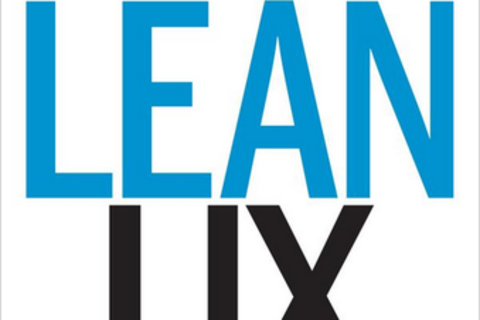
Jeff will read an excerpt from his book, Lean UX: Applying lean methods to improve user experience. Specifically, Jeff will discuss how product design and user experience has to adapt to fit in an agile and lean world. …
Advanced
Presenters
Jeff Gothelf
11:50 AM
Author Jeff Gothelf will appear at the SX Bookstore to sign copies of his latest release “Lean UX: Applying Lean Principles to Improve User Experience”.……
Presenters
Jeff Gothelf
12:00 PM

If iPad Nation were a country, by the end of 2013 it would be the 7th largest in the world, on its way to being 5th by mid-year 2014. From Kickstarter to Mommy bloggers, never before have so many people had so many cheap…
Intermediate
Presenters
James McQuivey

At Pennzoil®, we reimagined synthetic motor oil by creating it from natural gas. Now we’re using our commitment to innovation and technology to reimagine Mario Karting, a unique racing experience like no other exclusivel…
Join SXSW Startup Village for our third annual SXSW Ping Pong Tournament. Sign up at http://tinyurl.com/svpingpong. Participation is free if with an Interactive, Gold or Platinum badge. You need not be a professional, ju…

Come join us again for the good time you always find at LANFest! Expect the FreePlay Area, awesome games, and Raffle. And of course some of the most fun PC tournaments in the Austin area. If you are new, welcome and prep…
Welcome to the 2014 SXSW Interactive Festival. We're excited that you'll be joining us for 5 days of amazing panel content and networking events. SXSW is a community event, so we invite you to come kick off the event wit…
Intermediate
Presenters
Hugh Forrest
12:20 PM
Author James McQuivey will appear at the SX Bookstore to sign copies of "Digital Disruption: Unleashing the Next Wave of Innovation".……
Presenters
James McQuivey
12:30 PM

Exceptional design doesn't always have to come from the design department. In fact, designers often play by simple guidelines they follow intuitively that anyone can learn. In this session you will learn the techniques d…
Beginner
Presenters
Paul Trani

Ernie Cline, author of the New York Times and internationally bestselling novel Ready Player One, discusses his eagerly anticipated new novel Armada, including the surprising inspirations for the novel and how deeply it …
Beginner
Presenters
Ernie Cline
In our increasingly digital and technology-driven world, human social relationships are being transformed by data. Your previous online behavior is dictating the news reports, friends’ updates, products and advertisement…
Intermediate
Presenters
Chris Colborn, Dinkar Jain, Maria Bezaitis, Oren Michels
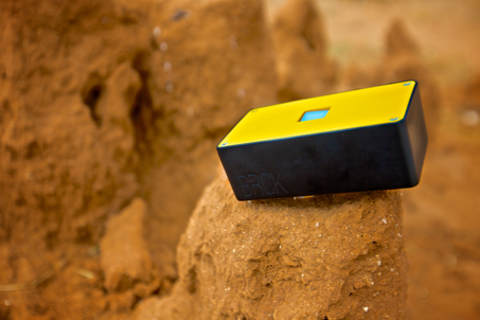
Ushahidi is from Kenya; we know how hard it can be to get connected. Those who lack connectivity are at a disadvantage to their more connected peers. Yet the equipment used to connect in Kenya or India is the same as tha…
Intermediate
Presenters
Erik Hersman, Juliana Rotich, Reg Orton
The doughnut and croissant have operated alongside each other for years, each awesome in their own way. Until one day, you bring them together and witness the magic unfold – The Cronut. Content and Commerce is the next e…
Intermediate
Presenters
Ben Lerer

Pioneering nonprofit 'Projects For All' is democratizing access to education by implementing digital infrastructure (Hello Hubs) in developing countries. Recently, the nonprofit launched ‘Project: Hello World’, an instal…
Beginner
Presenters
Katrin Macmillan, Lane Merrifield, Roland Wells, Sophie Kelly
“One of my tricks for generating startup ideas is to imagine the ways in which we'll seem backward to future generations. And I'm pretty sure that to people 50 or 100 years in the future, it will seem barbaric that peopl…
Intermediate
Presenters
Dr Dennis Schmuland, Dr Gautam Gulati, Morgan Gress, Naimish Patel
50% of Americans under the age of 5 are ethnic minorities. Join us as we examine the current and future mind shift from a general market driven approach to a more inclusive total market approach and engaging multicultura…
Intermediate
Presenters
Jesse Minton, Kelly Mayfield, Maurice Rivera, Vonn Butler
Crowdfunding is grassroots community engagement. Its powerful approach to fundraising and brandraising leverages the speed and reach of the Internet -- as well as advocates’ networks -- to acquire more donors and raise m…
Intermediate
Presenters
David Neff, Miriam Kagan

Anyone launching a new brand today hopes that their product, service or solution will become the darling of the industry--the thing that goes viral because people love it. Veteran brand strategist Laurence Vincent will s…
Intermediate
Presenters
Larry Vincent
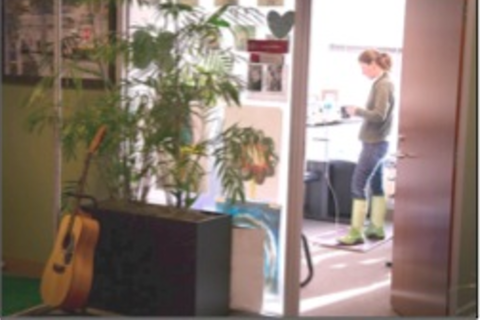
It’s true – studies show people prefer working from an office, but the growing list of today’s unusual perks (onsite haircuts, slides and bowling alleys) do little to address the real plight of today’s office worker: an …
Intermediate
Presenters
Lisa Ross
SXSW Interactive is an amazing event where you can make life and career changing connections. But, do you have a clear strategy for success for the five days and nights ahead? In this session, entrepreneur and social med…
Beginner
Presenters
Gary Vaynerchuk
Join Dave Asprey, Veronica Belmont & Maneesh Sethi as they discuss automating your life while running your business. Running a startup is an intense, all-consuming undertaking and new entrepreneurs have a hard time keepi…
Intermediate
Presenters
Dave Asprey, Maneesh Sethi, Stephanie Burns, Veronica Belmont
With several global retailers testifying before congress and the new guard from Silicon Valley taking the NSA to task, illusions around data security and privacy are collapsing, and consumers have a front row seat. As …
Intermediate
Presenters
Jon Swartz, Kelly McGinnis, Neville Letzerich, Vinny Lingham
Covering topics such as manufacturing in America vs China, The Manufacturing Future, and patents in the age of makers.……
Beginner
Presenters
Jonathan Placa
ATTENTION: Priority Seating is available for this session. To take advantage of this opportunity, you will need to have a valid SXSW badge, and an activated SXsocial account. To get your priority seating, please go here:…
Intermediate
Presenters
David Murphy, Doug Stovall, Helen Ectors, Jim McArthur
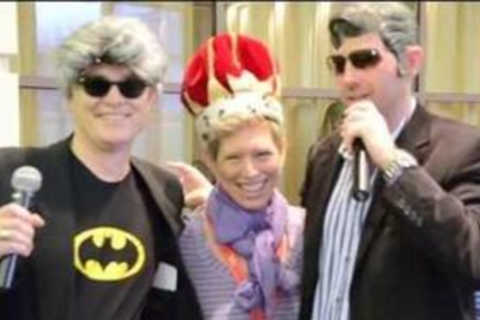
Enough of the pontificating panel! In a rapid and fast paced (gameshow like) session, we put the audience (that means YOU) in the hot seat as the experts on the future of social. A combination of format (lightning round …
Intermediate
Presenters
Sam Decker, Sean McDonald
Some of the most creative and successful video game marketing campaigns have tapped into the power of original music production to raise awareness of the game, to expand its creative universe, and to feed fans' insatiabl…
Beginner
Presenters
Jason Menkes, Ravi Krishnaswami, Steve Perkins
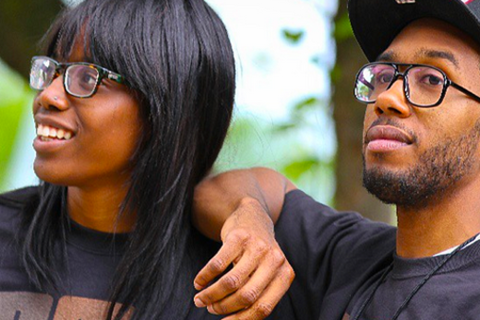
Trayvon Martin makes the headlines because black men are often portrayed as burdens, rather than assets to their communities. The Knight Foundation worked with Context Partners to help change this script, starting with D…
Intermediate
Presenters
Charlie Brown, Donna Frisby-Greenwood, Shaka Senghor, Trabian Shorters
Much of today’s news coverage dwells on images of violence, stories of government instability, and a world in chaos, but there is another story to tell here. Technology is reshaping human society in ways we never imagine…
Advanced
Presenters
Eric Schmidt, Jared Cohen, Steven Levy
Marketers are confronting an “omnichannel” world where consumers consult multiple sources and screens, sometimes making buying decisions in minutes. Brands need to be in customer pockets to capture those impulses at all …
Intermediate
Presenters
Keith Nyhouse, Pamela Naumes, Rachel Pasqua, Scott Carlis

LEGO fans make up one of the most enthusiastic online fan communities in existence. We don’t mean kids within the product target group; we mean the teen and adult fans. That’s right: Adult fans! By nature, these fans bu…
Advanced
Presenters
David Robertson, Frederikke Hoff, Glen Wadleigh, Sara Moore
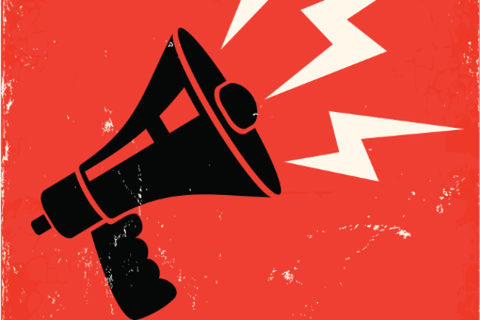
We write 3.6 trillion words online -- every single day. How is this explosion of online expression changing the way we think? In this talk, based on my book "Smarter Than You Think: How Technology is Changing Our Minds f…
Advanced
Presenters
Clive Thompson

'Press start to begin' is the message gamers have been greeted with since the early days of interactive entertainment. Hitting that start button is typically the player’s first interaction with a game after putting in th…
Intermediate
Presenters
David Sinclair, Michael Dunn, Richard Garriott de Cayeux, Ron Burke
You've heard about rewards based crowdfunding (the Kickstarters, and Indigogos) of the world, but do you know about equities crowd funding? With the anticipated Title III new regulations of the J.O.B.S (Jumpstart Our Bu…
Intermediate
Presenters
Chris Tyrrell, Jessica Randazza
ReleaseIt will give companies a head start on launching a new product or service at SXSW Interactive. Participants will do a short pitch about of their product in front of a live audience of SXSW Interactive, Gold and Pl…
Intermediate
Engaging millennials now takes more than just traditional outreach methods. Innovative approaches such as leveraging celebrity voices and platforms, new technologies and culturally relevant messaging is critical for impa…
Intermediate
Presenters
Alex Wagner, Rosario Dawson
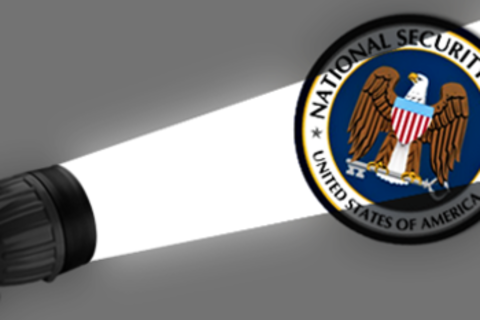
Since Google published its first “transparency report” in 2010, many other Internet companies large and small have started issuing there own reports on government demands for user data. And now, in light of recent revela…
Beginner
Presenters
Bart Volkmer, Dorothy Chou, Kevin Bankston, Ryan Budish

We have become adept at applying design thinking and methodologies to the design of products and customer engagement experiences. Isn’t it about time we apply this same thinking to our own work environments? We all recog…
Advanced
Presenters
John Hagel
12:50 PM
Author Clive Thompson will appear at the SX Bookstore to sign copies of "Smarter Than You Think: How Technology is Changing Our Minds for the Better".……
Presenters
Clive Thompson
1:00 PM
Into The Pixel is an annual art exhibit showcasing video game artwork and concept artwork. The exhibit is sponsored by the Entertainment Software Association (ESA). Each collection features 16 pieces which were selected…

A Game Jam is the growth of an idea that in today’s heavily connected world, we could come together, be creative, share experiences and express ourselves in a multitude of ways using video games – it is very universal. T…
The SXSW Gaming Expo brings the excitement of video games to March in Austin, mixing this energy with many other well-loved elements of geek culture. Featuring exhibitors, panels, rocking parties and exceptional demos, t…

ComiXology presents the hottest names in video games, comics, movies, TV, tech and more exclusively at the Geek Stage! Come see the biggest announcements of the SXSW Gaming Expo!……
The Indie Corner is where you’ll get time with some of the best indie titles the previous year had to offer and some that haven’t even hit release yet. Come play games and vote on which one you think should be winner of …
Learn to Play Magic: The Gathering- FREE. Check out Duels of the Planeswalkers. Drafts and League all weekend long. And are you a hard core table top gamer or just getting started. We can help navigate the experience wit…

See the fantastic world of eSports and watch as teams take each other on in some of the most intense matches in gaming. SXSW Tournament Stage presented by Monster and Logitech is open to the public with free Guest Pass …
The Videogame History Museum was established to document, preserve, and archive the history of the Videogame industry. After over ten years of exhibits at the world-famous Classic Gaming Expo, the 501(c)(3) non-profit Vi…
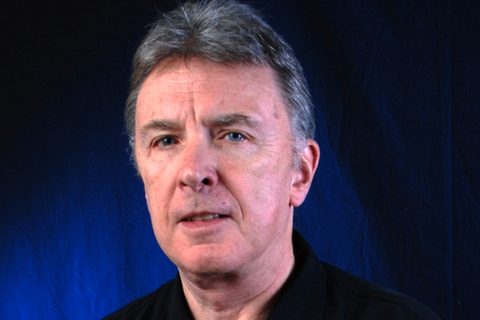
Synopsis: This presentation was designed for anyone who ever looked at a fantastic adventure or science fiction movie, or an amazingly complex and rich computer game, or a TV commercial where cars or gas pumps or biscuit…
Intermediate
Presenters
Jon Peddie
1:20 PM
Author Jon Peddie will appear at the SX Bookstore to sign copies of "The History of Visual Magic in Computers".……
Presenters
Jon Peddie
1:30 PM
Wikia presents Qwizards, an exciting live-action collaborative quiz show. Fans face-off in a multi-round battle of expert level trivia on the topic of J.R.R. Tolkien’s Middle-earth. Round after round, contestants fight t…
Presenters
Eric Moro
1:40 PM
Gary Vaynerchuk will appear at the SX Bookstore to sign copies of "Jab, Jab, Jab, Right Hook: How to Tell Your Story in a Noisy Social World".……
Presenters
Gary Vaynerchuk
2:00 PM
Come see 10 of Austin's startups pitch at the Capital Factory Demo Day. Austin's startup scene is booming, and we meet every one of them. The best ones join our community and are matched up with successful entrepreneur…
Intermediate
Presenters
Gordon Daugherty
This session will bring together a diverse contingent of professional athletes, sports figures and LGBT and ally activists discussing LGBT visibility and allyship in sports. Presenters will use their personal experiences…
Beginner
Presenters
Brittney Griner, Hudson Taylor, LZ Granderson
A nexus of discovery and collaborative energy, SXSW Film kicks off in high gear with their annual Beginner's Guide. Answering questions like how do I get around Austin during the fest? When should I arrive to get into my…
Beginner
Presenters
Brian Kelley, Jette Kernion, Kelly Williams, Kimberley Jones, Neil Miller
For folks of all disciplines interested in biohacking: Calling all biologists, DIYers, engineers, artists, coders, designers, and any others who are bio-curious. Join us! This SXSW Create session at the Long Center is F…
Intermediate
Presenters
Karen Ingram
Women may make up the majority of online users, trendsetters, and consumers, but we have a long way to go to reach proportionate amounts in the field of technology. A 2009 study indicated that Latinas formed only 5% of e…
Intermediate
Presenters
Becky Arreaga, Rebecca Gonzales
Carmelo Gordian (Partner at Andrews & Kurth), John Edge (a UK Entrepreneur), Lefteris Douanoglou (CEO at Schoox) and Angelos Angelou (Angelou Economics) will identify and address the major issues and challenges internati…
Advanced
Presenters
Angelos Angelou, Demetris Gerogiannis, John Edge, Tony Defalis
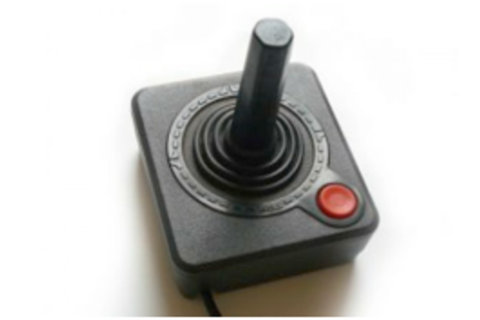
In this presentation, we will show some beginning basics to get you started, give student examples, and show how Scratch can be applied across the curriculum. You will discover how to get students interested in basic gam…
Beginner
Presenters
Carl Hooker, Juan Orozco, Todd Gratehouse
The next great media tech wave is already here, and it fits like a glove, a watch, eyeglasses, a bracelet, a pendant or maybe a hat or a band-aid. Wearable technology promises a seamless interface of body and machine and…
Intermediate
Presenters
Bachir Zeroual, Rob Garner, Shiv Singh, Sloane Kelley
ATTENTION: Priority Seating is available for this session. To take advantage of this opportunity, you will need to have a valid SXSW badge, and an activated SXsocial account. To get your priority seating, please go here:…
Intermediate
Presenters
Aaron Smith, Christine Jones, Michele Silvestri

The web has become a rich creative platform. It's so ubiquitous that it's hard to imagine any game changer not being a part of the web. We're reaching a point where ideas we could only dream of in the past from interacti…
Intermediate
Presenters
CJ Gammon

With 120% of mobile penetration in the region we are on a tipping point. 700 million users are looking for new forms of entertainment, commerce and services in Latin America. What kind of business relationships are neede…
Intermediate
Presenters
Pablo Salazar
Good work is all about process, yet we tend to only share the products of that process, and not the process itself. Learn how opening up and sharing your process brings you closer to an audience, adds value to your work,…
Advanced
Presenters
Austin Kleon
Following on the success of the 2012 and 2013 Social Health Startup Bootcamp (#SXSHbooty), 2014 will mark the 3rd consecutive year of the event that provides education, inspiration, and funding advice for (social) health…
Intermediate
Presenters
Ryan Olohan, Shwen Gwee, Unity Stoakes
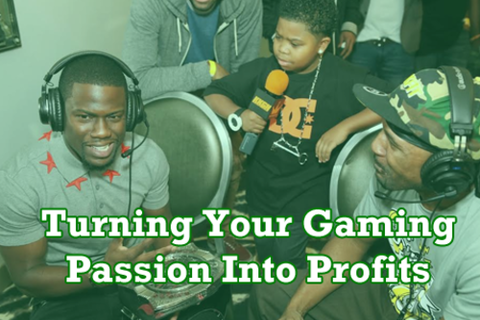
Do you have to be a programmer to have a career in the gaming industry? Join James Lopez as he discusses alternative careers in the gaming industry with gamers who have taken their gaming passion and have created busines…
Beginner
Presenters
Anthony Frasier, Cj Peters, James Lopez, Jarvis Brown
In May 2013, creative studio and game developer Fuel Entertainment was officially granted permission to excavate within a 100-acre landfill in the Alamogordo, New Mexico desert. The goal? Search for the fabled Atari E.T…
Advanced
Presenters
Jonathan Chinn, Mike Burns
2:30 PM
You watch a lot of online videos but how do you make a living making them?? Craig Skistimas, the General Manager of ScrewAttack, is here to teach you in on how you can scratch and claw your way to making a living produc…
Presenters
Craig Skistimas
3:00 PM
Ernie Cline will appear at the SX Bookstore to sign commemorative postcards for his soon to be released book “ Armada” and copies of "Ready Player One: A Novel".……
Presenters
Ernie Cline

Through his work on both independent and studio films, Pete Horner has developed an approach to film sound that explores the unique language of each film. In this presentation, Pete will share clips illustrating the pote…
Intermediate
Presenters
Pete Horner
Attend an interactive workshop with the team responsible for bringing new apps to Chevrolet. Learn how to build apps for vehicles, discuss developer opportunities within Chevrolet, and demo a sample of in-vehicle apps. …

Oh My Disney and Mondo invite fans to “Nothing’s Impossible,” a special gallery event to explore decades of beloved Disney films and characters like never before. Come see original and fresh artwork from some of Mondo’s …
3:10 PM
Austin Kleon will appear at the SX Bookstore to sign copies of "Show Your Work!: 10 Ways to Share Your Creativity and Get Discovered" and past publications.……
Presenters
Austin Kleon
3:30 PM
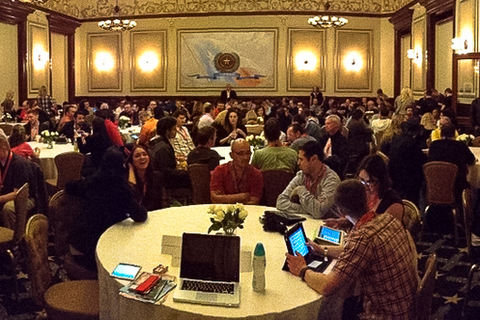
A meet-up to talk about SXSW. Discuss how to get through a day of panels and parties and still keeping your particulars. Tips on how to make the most of SXSW during one of the busiest panel sessions offered at a conferen…
Beginner
Presenters
Sweet John Muehlbauer
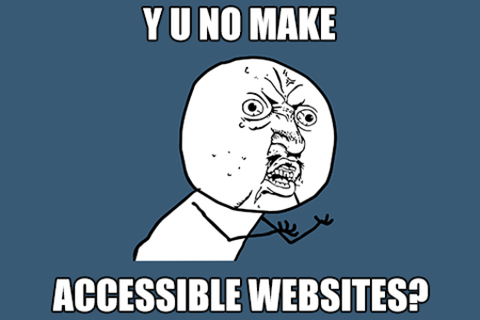
ATTENTION: You must signup in advance to attend this workshop. You will need to have a valid SXSW badge, and an activated SXsocial account. To reserve your seat, please go here: https://sup.sxsw.com/schedule/IAP24940 Yo…
Intermediate
Presenters
Carol Gibson, Susan Hewitt
Every startup raves about innovation, but how does it work within a large company? As technology changes and consumer demand shifts, it’s vital for companies big and small to question and re-evaluate their strategies. Ad…
Intermediate
Presenters
Greg Tseng, Hetal Pandya, Mike Isaac, Ryan Magnussen
Kick off SXSW Film right on Day One by getting insider tips, strategies and advice you can use to maximize your time at the film fest, straight from some of today’s most influential film pundits. Offering up a “sneak pre…
Beginning
Presenters
Anne Thompson, Dave Karger, Eugene Hernandez, Meredith Borders
Tricked-out home entertainment systems and rising ticket prices make it easier than ever for sports fans to skip the stadium and watch from home. It's increasingly difficult to compete with the creature comforts of a 70-…
Intermediate
Presenters
Bob Morgan, Bryan Srabian, John Ourand, Jordan Maleh
Michael Dell, founder and CEO of Dell, will host a panel of successful entrepreneurs for an insightful discussion about starting and scaling a business, innovating beyond the startup phase, corporate reinvention and lead…
Advanced
Presenters
Carley Roney, Jeff Housenbold, Michael Dell, Steve Kaufer
As per the recent Pew poll, Hispanics were more than twice as likely to use reddit than other ethnic groups. There is a subreddit dedicated to all the Spanish speaking countries and cities around the world, and bilingual…
Beginner
Presenters
Elianne Ramos, Lia Navarro-Pennington

As anyone who cried when Aeris died knows, it’s easy to fall in love with your favourite game character. One of gaming's biggest strengths is the ability to allow players to form deep emotional bonds with characters. Emp…
Intermediate
Presenters
Michelle Hamilton-Page, Miriam Verburg

Building a startup is hard. Really hard. It's a whirlwind experience that requires boldness to win in today’s market. The latest technology companies understand what it takes to win and are adapting their go-to-market s…
Intermediate
Presenters
Jay Hallberg, Susan Etlinger, Tad Hunt, Todd Krautkremer
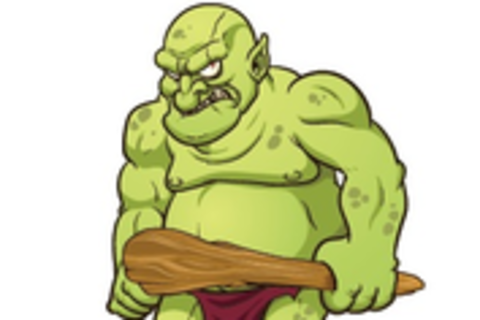
Innovators face a growing epidemic of litigation from so-called "patent trolls" - companies that do not make or produce products, but sue those who do. Last year the majority of patent lawsuits were brought by such enti…
Intermediate
Presenters
Alan Schoenbaum, Hon Hakeem Jeffries, Julie Samuels, Michael Petricone
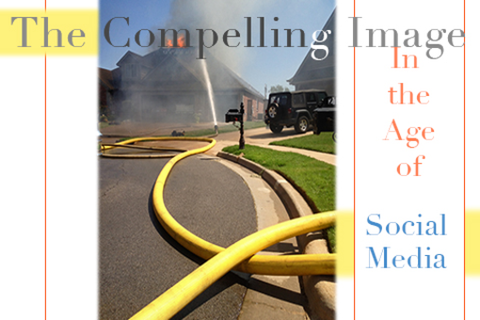
ATTENTION: You must signup in advance to attend this workshop. You will need to have a valid SXSW badge, and an activated SXsocial account. To reserve your seat, please go here: https://sup.sxsw.com/schedule/IAP24603 A …
Intermediate
Presenters
Marty Coleman

ATTENTION: You must signup in advance to attend this workshop. You will need to have a valid SXSW badge, and an activated SXsocial account. To reserve your seat, please go here: https://sup.sxsw.com/schedule/IAP25626 It…
Beginner
Presenters
Amadeus Stevenson, Barry Whyte, Elizabeth Lukas, John Ridpath
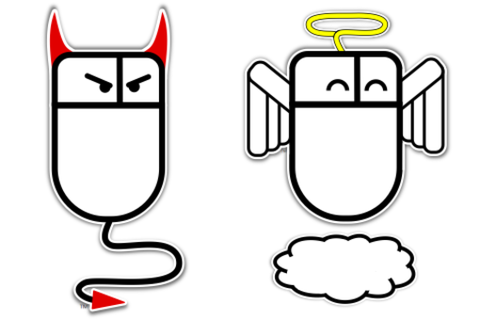
I'm going to show you how to make your customers happy using techniques that are normally employed by the lowest of the low; con-men, pick-up artists, used car salesmen, and as-seen-on-tv marketers. You'll learn that it'…
Intermediate
Presenters
Chris Nodder

Online retail is evolving from a simple shopping cart transaction to an end-to-end emotional engagement with one’s consumer base. While this is true for most industries, it is even more so the case when it comes to consu…
Intermediate
Presenters
Ciara McKenna, Kim Knowles, Liz Bacelar, Liza Kindred
Still can't decide which films you wanna check out this week? OR Have a film in the festival and want to get the word out? Then come to this informative and fun SXSW Filmmaker Pitch Session! Filmmakers - Come pitch your…
Beginner
Presenters
Owen Egerton
Do you dream of perfect serifs, swashes and ligatures? Interested in marketing your newest typeface? Want some feedback on your creative endeavors? Or maybe just have the desire to catch up on the latest gossip in the Ho…
Beginner
Presenters
Jim Kidwell
Five international startups engage in a live pitching event to impress venture capitalists, angels and entrepreneur experts. Startups get up and close to the real challenge of engaging potential investors and customers. …
Intermediate
Following on the success of the 2012 and 2013 Social Health Startup Bootcamp (#SXSH), 2014 will mark the 3rd consecutive year of the event that provides education, inspiration, and funding advice for (social) health tech…
Beginner
Presenters
Andrei Zimiles, Sam Zebarjadi, Samer Hamadeh
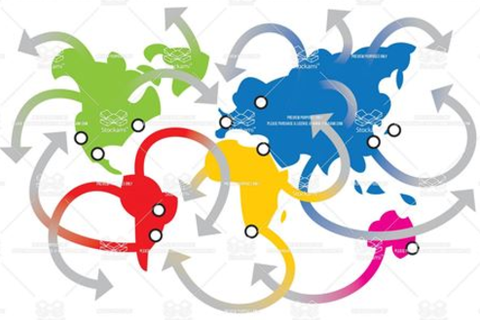
80% of humanity lives on less than $10/day. If you are part of the world's lowest socioeconomic level you may be living in a house that can barely be called that. It's a collection of sticks, cardboard, plastic sheet. A …
Intermediate
Presenters
Jose Briones
With shows like TableTop, Big Bang Theory celebrating board games plus an open global market, we've entered a golden age of tabletop gaming. Geek & Sundry producer Boyan Radakovich (TableTop, TableTop Day) leads a discus…
Presenters
Boyan Radakovich

ATTENTION: You must signup in advance to attend this workshop. You will need to have a valid SXSW badge, and an activated SXsocial account. To reserve your seat, please go here: https://sup.sxsw.com/schedule/IAP18020 Ho…
Intermediate
Presenters
Andrew Sanderson, Eric Shelton, Quintin Henry, William Lowe
It takes more than a few good uppercuts to fight your way to the top of the entertainment industry. From a #1 selling video game franchise, to an animated and live action feature film success, to an Internet meme generat…
Beginner
Presenters
Craig Skistimas, Josh Kocurek
The technology industry has reinvented information, commerce, and social connection. But what if we could do more? What if the tech industry, the cornerstone and hope of the new economy, could reinvent business as usual?…
Intermediate
Presenters
Ben Rattray
Drawing on more than 40 years as a Hollywood executive and his current roles as co-owner of the Golden State Warriors and the Los Angeles Dodgers, Peter Guber discusses why sports content “isn’t just programming, it’s pa…
Intermediate
Presenters
Peter Guber
User experience has become a ubiquitous buzzword in the tech and design field. Equally as ubiquitous is the association of "user experience" with the title "designer". Which is irritating. This talk is about my journey …
Intermediate
Presenters
Morgan Burton

Does the recent explosion of MOOC’s into the education marketplace threaten to destroy traditional post-secondary educational institutions in it’s path? Or is it just another fad in a long history of educational movement…
Beginner
Presenters
Dave Hinger, Jeff Meadows
ATTENTION: Priority Seating is available for this session. To take advantage of this opportunity, you will need to have a valid SXSW badge, and an activated SXsocial account. To get your priority seating, please go here:…
Intermediate
Presenters
Dave Knox, Heidi Browning, Scott Lange, Sefi Grossman
Let's deconstruct & design actionable ideas about why Libraries, Archives, and Museums within the SXSW conversation is important -- beyond rubbing shoulders with meme-enablers and tool creators. You'll leave with new par…
Intermediate
Presenters
Rebecca Stavick
Professor Amy Cuddy’s fascinating experimental research reveals how your nonverbal behavior not only affects how others see you; it also affects how you see yourself, your testosterone and cortisol levels, risk tolerance…
Intermediate
Presenters
Amy Cuddy
Mentor Sessions enable less-established new media professionals to gain seven minutes of direct one-on-one career-related council from a more established / more experienced new media professional. Please visit this URL t…
Beginner
Presenters
Ben Thoma
Mentor Sessions enable less-established new media professionals to gain seven minutes of direct one-on-one career-related council from a more established / more experienced new media professional. Please visit this URL t…
Beginner
Presenters
Dan Hou
Mentor Sessions enable less-established new media professionals to gain seven minutes of direct one-on-one career-related council from a more established / more experienced new media professional. Please visit this URL t…
Beginner
Presenters
Elijah May
Mentor Sessions enable less-established new media professionals to gain seven minutes of direct one-on-one career-related council from a more established / more experienced new media professional. Please visit this URL t…
Beginner
Presenters
Margot Bloomstein
Mentor Sessions enable less-established new media professionals to gain seven minutes of direct one-on-one career-related council from a more established / more experienced new media professional. Please visit this URL t…
Beginner
Presenters
Rena Tom
Mentor Sessions enable less-established new media professionals to gain seven minutes of direct one-on-one career-related council from a more established / more experienced new media professional. Please visit this URL t…
Beginner
Presenters
Stephen Land
The Millennial generation, born between 1980-2000, is moving into manager and leadership positions rapidly with a desire to excel. They have a workplace style that is vastly different than their predecessors. Raised in a…
Intermediate
Presenters
Jennifer Selke

There has been a proliferation of accelerators across the globe, and now across various "verticals" like energy, finance, hardware, etc. But there is another emergent theme of mission-driven accelerators who marry a publ…
Intermediate
Presenters
Corey Ford, Jake Shapiro
MailChimp.com enables its 3 million users to send 5 billion email newsletters each month. The site is key to many nonprofits’ and small businesses’ efforts to stay in conversation with their audiences. MailChimp's succ…
Intermediate
Presenters
John Foreman

Africa has a population set to double by 2050, and along with population growth, the continent is reaping the benefits of expansion in the country’s information and communications technology (ICT) infrastructure. In Sub-…
Beginner
Presenters
Claude Migisha Kalisa, Fred Mweetwa, Gertjan van Stam, Jessica Colaço
The mobile social media titans Facebook and Twitter have declared war over the branded video space. In this corner Instagram with 15 second spots that mirror TV, the medium agencies love. In the other corner vine, 6-seco…
Intermediate
Presenters
Brad Walters, Dave Marsey, Katrina Craigwell, Mark W Smith
HTML is a powerful platform for weaving a story of data through interactivity and motion. What could otherwise be dry, stale, or rather boring information suddenly becomes vibrant, engaging, and entertaining. Interactive…
Intermediate
Presenters
Sarah Hunt

The ideology of open source is simple: Share what you make, collaborate with others to improve it, and repeat. This started out in software, but has exploded into all areas of creativity. Hardware, art, music, and even c…
Intermediate
Presenters
Tom Callaway
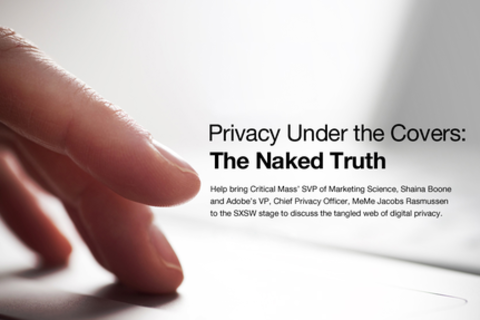
The privacy landscape evolves dramatically every day. It is a legal, governmental and humanitarian soap opera. Most data privacy conversations to date have done little more than make consumers suspicious and often parano…
Intermediate
Presenters
MeMe Jacobs Rasmussen, Shaina Boone

One of the foremost issues today in connected technologies is privacy, and more specifically, who controls personal data – the individual who uses the technology, the company that produced the technology or the governmen…
Intermediate
Presenters
Anna Laitin, Catherine McCullough, Cora Han, Harold Ford Jr

Sensors, apps, and social networks are converging with new expectations to create better care and an improved user experience. 3-D printing and robotics are moving into the mainstream and must be convenient and accessibl…
Advanced
Presenters
Andy Palmer, Scott Stropkay
ATTENTION: You must signup in advance to attend this workshop. You will need to have a valid SXSW badge, and an activated SXsocial account. To reserve your seat, please go here: https://sup.sxsw.com/schedule/IAP22681 So…
Advanced
Presenters
Scott Lenger

Real-time storytelling allows the audience to actively participate in the making of a story or advertisement. A recent example of ours, “Remote Control Tourist,” exemplifies this concept. For this, we used Twitter and Fa…
Intermediate
Presenters
Dustin Callif, Jason Nickel, Jason Zada
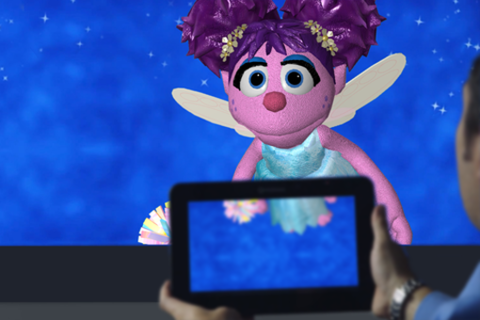
Sesame Workshop, Qualcomm and Two Bulls recently partnered to develop a new type of gaming experience for preschoolers. Using Qualcomm’s AllJoyn technology combined with the Unity SDK, this multi-screen game prototype s…
Intermediate
Presenters
Brian Vogelsang, Jessie Hopkins, John Cameron, Noah Harlan
"Stop your tweeting and focus!" Sports stars have incredible power through social media - often more than clubs or other organisations. It is a new frontier of fan and brand engagement - but the rough comes with the smoo…
Intermediate
Presenters
Johny Hendricks, Richard Ayers
In 2010, I took the stage at an entrepreneurship competition. While I stood up there, I didn’t notice that the other four finalists were male until the organizer gave us our awards. Along with a plaque, they gave me a ma…
Intermediate
Presenters
Catherine Cook
Start-up executives must sell. You are your company's greatest advocate as well as the one best positioned to understand your company's capabilities and value proposition. In this Meet-up, we will gather start-up exec…
Advanced
Presenters
Jason Hochman
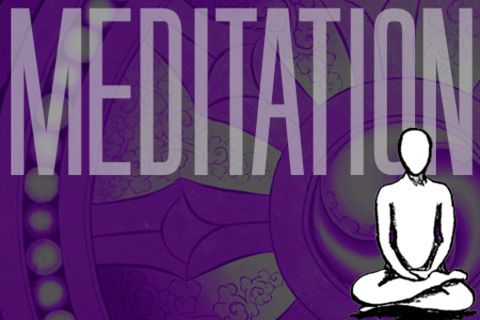
Like any powerful tool, the human brain needs a bit of a tune-up now and then. Take a break from the bustle of SXSW and give your mind and body a chance to assimilate all the new ideas and energy at the conference. This …
Beginner
Presenters
Ari Stiles

Jeremiah Owyang has shown that the future of business lies in the Collaborative Economy, “an economic model of shared ownership and access between people, startups and corporations all working together.” There’s been a …
Intermediate
Presenters
Andrew Barton, Anousheh Ansari, Bob Richards, Ruben Nunez
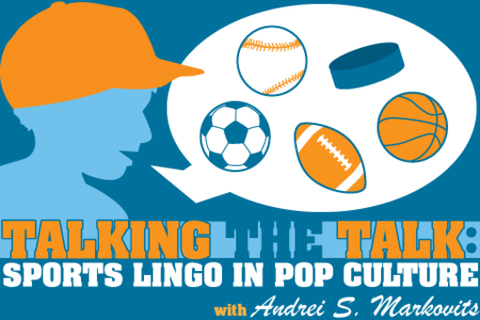
Sports matter. Their marquee events -- the Olympics, various world championships, most prominently the World Cup in soccer, the Super Bowl,the World Series, the UEFA Champions League Final, the NBA and NHL finals, the Am…
Beginner
Presenters
Andrei Markovits
Adam Nash, CEO of Wealthfront – the largest online financial advisor – and Dr. Pat Basu, Chief Medical Officer of Doctor on Demand – a virtual medical practice that allow patients to access physicians 24/7 – will discuss…
Intermediate
Presenters
Adam Nash, Pat Basu

SXSW provides a fascinating opportunity for higher ed technologists to network and learn about an array of new interactive technology ideas and discoveries. At this meet-up, Penn State IT tech enthusiasts invite you to j…
Beginner
Presenters
Cynde Fleagle, Patti Fantaske
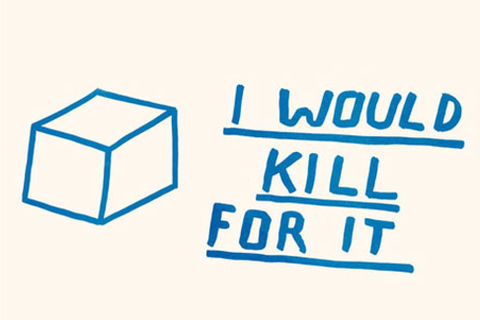
As product design, user interfaces and frameworks are all converging to humanize technology and make it all about the complete user experience, valuable, relevant content is the currency of the new digital economy. Users…
Intermediate
Presenters
Jon Setzen
Do you love your toys? Does your desk resemble a small museum to your most passionate pop culture obsessions? Even if your collection isn't complete, we want to hear about it. Join toy lovers, creators, and innovators …
Beginner
Presenters
Lizzy Newsome
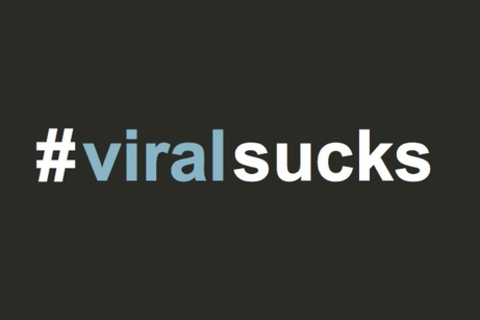
It’s the absolute worst word that can come out of someone’s mouth. Whether a colleague, boss, client, or a doctor, if you hear the word “viral” you’re in trouble. Someone probably read "The Tipping Point" but skipped "Th…
Beginner
Presenters
Craig Key
It may come as a surprise, but on average five countries write new constitutions every year. The people who write these documents are often outgunned and under-resourced as they try to search and analyze constitutions fr…
Intermediate
Presenters
Juan Sequeda, Robert Shaffer, Zachary Elkins
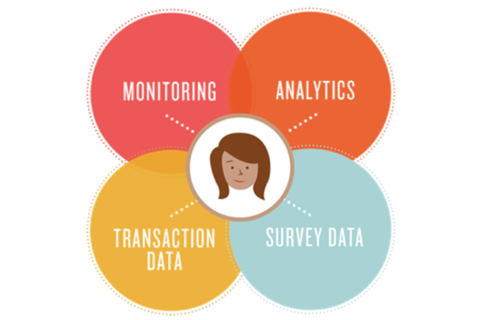
Social media analytics can help you understand the active members of your social media audience, but what about the people who aren't posting? How do you fill in the gaps in your analytics with insight into your customer…
Beginner
Presenters
Alexandra Samuel, Beth Kanter, Colby Flint, Jeremiah Owyang
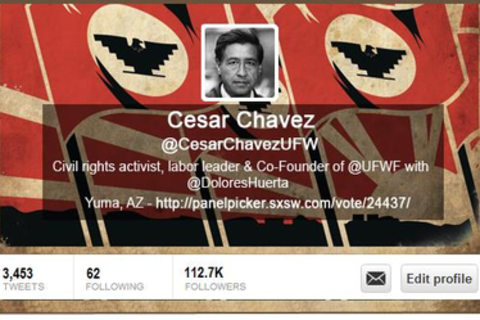
We have witnessed social media’s power to topple governments and change public policy. This shift in political power is enabling the general public to engage in the democratic process like never before. One wonders how c…
Intermediate
Presenters
Aasil Ahmad, Estuardo Rodriguez, Melody Gonzales, Paul Chavez
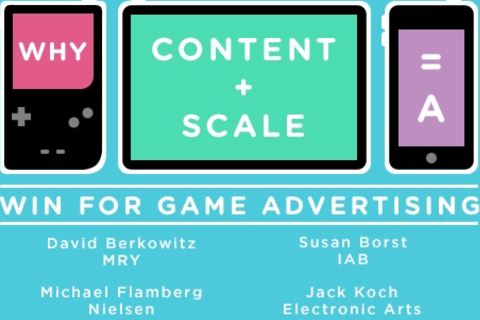
Gaming is an advertising medium which is driven by engaging content and cross-platform solutions and, increasingly, brands are taking notice with higher advertising spending across console, social and mobile. During thi…
Intermediate
Presenters
David Berkowitz, Jack Koch, Michael Flamberg, Susan Borst
We don’t need to convince entrepreneurs to move to Austin - almost every day we receive emails from people deciding to do that on their own! Maybe it’s because Austin is the most cost-effective place to launch a startu…
Advanced
Presenters
Andrew Busey, Gordon Daugherty, Kip Mcclanahan, Mike Maples Jr
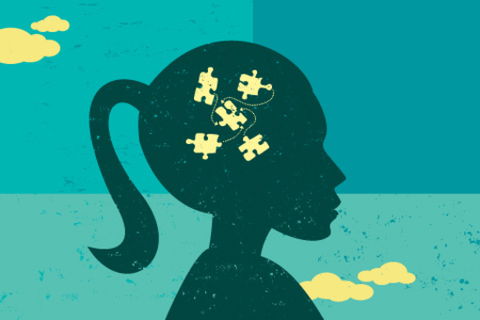
The last year has seen an explosion of examples of women helping women—in business. From women founding companies at 1.5 times the rate of men, to businesses specifically focused on helping women navigate their careers a…
Intermediate
Presenters
Diana Rothschild, Stacey Delo
Since most start-ups are operating on a tight budget, hiring a Product Manager is often delayed until the business begins to scale. However, for start-ups to be successful the product management function still needs to …
Intermediate
Presenters
Alicia Dixon, Jason Shah, Paul Young, Teresa Torres
3:45 PM
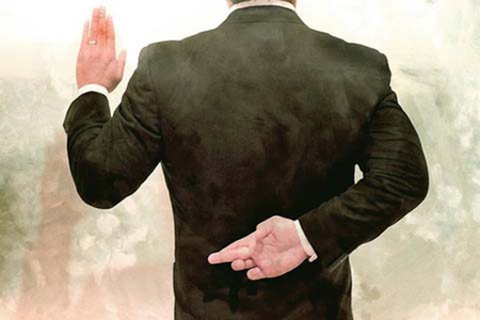
Can you use data to spot a liar? The answer may not be found in what a person says, but rather in how he/she says it. Prepared liars are always conscious about their spoken content and details, but often overlook the wor…
Intermediate
Presenters
Noah Zandan
3:50 PM
Author John Foreman will appear at the SX Bookstore to sign copies of "Data Smart: Using Data Science to Transform Information into Insight".……
Presenters
John Foreman
4:00 PM
Larry Vincent will appear at the SX Bookstore to sign copies of "Brand Real: How Smart Companies Live Their Brand Promise and Inspire Fierce Customer Loyalty".……
Presenters
Larry Vincent
Cloud Economics Inside the Firewall -for many CIOs, data privacy, data residency, and compliance requirements will ensure that certain enterprise applications remain on premise for some time. This doesn't mean the infras…
Intermediate
Presenters
Adam Carter
In the next era of computing, the coming “plague” will bring an elaborate network of devices, sensors and radios that will talk with each other, and collect, store and analyze overwhelming amounts of data. It will delive…
Intermediate
Presenters
Tony Salvador
A special reception that shines the spotlight on emerging startups. Enjoy complimentary beer and wine while checking out demos from startup participants, all within the heart of Startup Village on the 4th floor of the Hi…
4:15 PM

Wearable technology, smart meters, and networked devices have generated an environment of abundant digital chatter. It’s now socially acceptable to compete with your FuelBand, send a text to your thermostat, and argue wi…
Intermediate
Presenters
Jennifer Dunnam

Should women in business be funny? It’s proven (2011 psychology study) that men are funnier than women. Women shy away from humor in the work place, and (yet another study) men are not attracted to funny women. Till now,…
Intermediate
Presenters
Amy Harrison
4:30 PM
Join some folks from Rooster Teeth Productions as they discuss the unconventional way they broke into the games industry and helped consumers directly connect with content producers……
Presenters
Burnie Burns, Gustavo Sorola
4:40 PM
Anne Thompson will appear at the SX Bookstore to sign copies of "The $11 Billion Year: From Sundance to the Oscars, an Inside Look at the Changing Hollywood System". To learn more about her book visit: http://bit.ly/1c…
Presenters
Anne Thompson
5:00 PM
In an increasingly connected world, our devices will become an extension of ourselves, embracing elements of ambient intelligence, voice and natural language understanding to not only deliver desired information, but und…
Advanced
Presenters
Vlad Sejnoha
Rob Garner will appear at the SX Bookstore to sign copies of "Search and Social: The Definitive Guide to Real-Time Content Marketing".……
Presenters
Rob Garner
Brands want to be loved. Consumers seek happiness. Brands make consumers happy by creating strong emotional connections to the things consumers are most passionate about. Sport is an inspirational power for good. Sp…
Intermediate
Presenters
Simon Wardle
Coding is a skill that is traditionally held by a select group of individuals within a company. We know them as developers, computer science students, programmers, hackers… and in a few rare cases (perhaps too few), CEOs…
Beginner
Presenters
Lew Cirne

After spending a long day enjoying SXSW, kick back with some video eye candy and an adult beverage courtesy of video-sharing site Dailymotion. Come watch the best videos uploaded by Dailymotion’s creative community and m…
What does it mean when low literacy communities are overrepresented on Twitter? When their residents own more cell phones than computers? When their shopping districts have liquor stores and wig shops but no libraries o…
Advanced
Presenters
Candis Best, Sian Morson
digitalundivided (DID) is a tech based social enterprise founded by black women, that is leading the charge to develop a model for tech entrepreneurship and education created by the community, for the community. 25% of t…
Intermediate
Presenters
Ashley Scott, Elisa Camahort Page, Tobias Wright, William Crowder

Stop by to recharge, play games, and enter to win a Kindle Fire HDX or gaming headset. And don’t miss happy hour daily 5:00 - 7:00pm: free drinks and music by DJ Pinky. Dolby Sound Exchangei s open to the public with fr…
ATTENTION: Priority Seating is available for this session. To take advantage of this opportunity, you will need to have a valid SXSW badge, and an activated SXsocial account. To get your priority seating, please go here:…
Intermediate
Presenters
Toby Barlow
What would you do if you were not afraid? What would the world look like if we took a more "fearless" approach to solving our biggest social challenges - if we were willing to take more risks, create unlikely partnership…
Beginner
Presenters
Ahmed Shihab-Eldin, Jean Case
Five international startups engage in a live pitching event to impress venture capitalists, angels and entrepreneur experts. Startups get up and close to the real challenge of engaging potential investors and customers. …
Intermediate

I think the cancer space is broken. By using tech, humor & humans we've managed to challenge the status quo & create a truly different cancer movement. I'll talk about why we've made the decisions we have, how they've ma…
Intermediate
Presenters
Yael Cohen
The idea of making isn’t just reserved for handmade bikes, artisan pickles, and Arduino helicopters. The future of making is a product of our human needs and the possibilities we create through technology. This is about …
Beginner
Presenters
Joie Ito, Tim Brown

With millions of dollars on the line, sports teams are demanding the latest technology to maximize their players' performance. Whether it's wearable sensors with GPS capability or motion-tracking cameras capable of captu…
Intermediate
Presenters
Adir Shiffman, Ben Alamar, Brian Kopp, Kirk Goldsberry
Is there a formula for making content go viral? Is it just plain luck? While there’s not a lot to explain the weird virality of LOLcats and "Charlie bit my finger!" videos, there is a formula, honed and mastered by the I…
Intermediate
Presenters
Courtney Buie, Henri Mazza, James Moody
To thrive in 2014 and beyond, Latino entrepreneurs need to go beyond social media and begin to establish their own media platforms based on a content marketing strategy. But this requires a change in mindset. Latino e…
Beginner
Presenters
Fernando Labastida, Manuel Delgado
The hilarious tweets written by funny people Megan Amram @meganamram, Jenny Johnson @JennyJohnsonHi5 and Josh Hara @yoyoha have not only attracted hundreds of thousands of followers, they've also landed these social medi…
Beginner
Presenters
Jenny Johnson, Josh Hara, Matt Silverman, Megan Amram
Andrew Wilson, CEO of EA, will sit down in a fireside chat to talk about his background in game development, what he's learned about developing immersive game experiences and how he will use that to inform his vision for…
Intermediate
Presenters
Andrew Wilson, Noah Robischon
Award-winning investigative sports journalists Charles Robinson of Yahoo Sports and Pete Thamel of Sports Illustrated will discuss how the digital age has transformed their roles as hell-raisers, um, hard-nosed reporters…
Intermediate
Presenters
Charles Robinson, Pete Thamel
Achieving financial bliss, or even organizing everything in one place, is no easy task. There are many obstacles to maintaining stability like: How much am I spending on necessities? What’s the best way to handle debt? A…
Intermediate
Presenters
Vince Maniago
As U.S. citizens, we have a right to life, liberty and the pursuit of happiness. But do we have a right to data privacy? Or is privacy just an illusion? Privacy has become a touchy subject (see: NSA); consumers want to f…
Intermediate
Presenters
Barrie Vanbrackle, Greg Cohen

When Karen discovered she had a life threatening heart condition, the last thing she expected was to have to worry about software. Now, with a heart device implanted in her body, she has come to understand not only how v…
Beginner
Presenters
Karen Sandler
How CulturEdge are you? Whether Latino or not, you could be on the CulturEdge, that place where cultures mesh, influence and are influenced by one another. It’s not stagnant, it’s a remix of familiar and new. It’s abou…
Intermediate
Presenters
Adrienne Pulido, Cristina Garcia Gamboa

The answer: Yes. The question: Could you hijack my yacht? The backstory: It all started at SXSW. After hearing professor Todd Humphreys report in his 2013 SXSW Interactive panel that he had brought down an unmanned aeria…
Beginner
Presenters
Andrew Schofield, Jahshan Bhatti, Kenneth Himschoot, Todd Humphreys
China is often portrayed as an enormous factory that pumps out products invented elsewhere. But as global "maker culture" is transitioning from a hobby into a profession, China is playing a significant role in changes to…
Intermediate
Presenters
Silvia Lindtner

Digital Health is a burgeoning space, with relatively few prolific angel and venture investors, but entrepreneurs are getting creative about finding capital. This presentation will dissect the funding options for variou…
Intermediate
Presenters
Andrew Farquharson, Breanna DiGiammarino, Halle Tecco, Sarah Kessler

Democratized innovation is fuelling a new industrial revolution. Traditional brands need to disrupt themselves before someone else does it for them. Smart CEOs know that innovation doesn't happen at head office any more…
Intermediate
Presenters
David Caygill
Mentor Sessions enable less-established new media professionals to gain seven minutes of direct one-on-one career-related council from a more established / more experienced new media professional. Please visit this URL t…
Beginner
Presenters
Cesar Vazquez
Mentor Sessions enable less-established new media professionals to gain seven minutes of direct one-on-one career-related council from a more established / more experienced new media professional. Please visit this URL t…
Advanced
Presenters
Eugene Hsu
Mentor Sessions enable less-established new media professionals to gain seven minutes of direct one-on-one career-related council from a more established / more experienced new media professional. Please visit this URL t…
Beginner
Presenters
Michael Robin Manning
Mentor Sessions enable less-established new media professionals to gain seven minutes of direct one-on-one career-related council from a more established / more experienced new media professional. Please visit this URL t…
Beginner
Presenters
Nazli Yuzak
Mentor Sessions enable less-established new media professionals to gain seven minutes of direct one-on-one career-related council from a more established / more experienced new media professional. Please visit this URL t…
Beginner
Presenters
Rick Timmins
Mentor Sessions enable less-established new media professionals to gain seven minutes of direct one-on-one career-related council from a more established / more experienced new media professional. Please visit this URL t…
Beginner
Presenters
Russ Somers

Do you love your phone? Do you love your phone so much that you cannot imagine life without it? That the thought of being “disconnected” creates an incredible sense of anxiety? This is THE meet up of SXSW where mobile ad…
Beginner
Presenters
Denzil D'Sa, Jenviev Azzolin
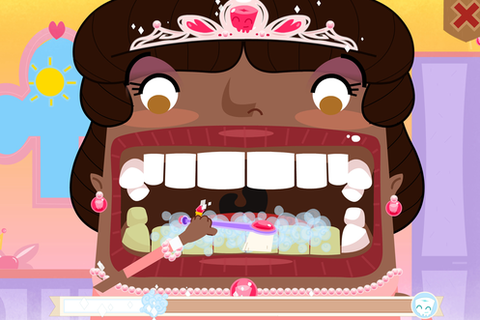
Mobile and tablet devices are critical platforms for communicating social good messages with young children and their parents. But in this decidedly new frontier, what are the rules? The youngest generation is a captive…
Intermediate
Presenters
Alison Bryant, Anastasia Goodstein, Judith Beauregard, Scott Traylor
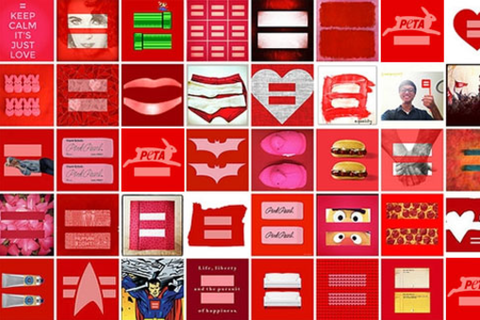
This panel will uncover new & exciting ways to use technology to power social change. We will go beyond the basics—sending targeted action alerts & creating online petitions—& discover fresh & innovative virtual campaign…
Advanced
Presenters
Anastasia Khoo, Joel Bartlett, Marah Lidey, Noah Cooper
If you walk into the office of a tech startup, from B2C to B2B businesses, chances are you'll see a room full of men and maybe one or two females. There is a lot of great work being done to promote women in tech, but oft…
Intermediate
Presenters
Adena DeMonte, Casey Taylor
The number of people utilizing and explicating social media in oversimplified or academic-driven terms far outweighs the number of individuals using these tools in creative ways that are supported by interactivity, perso…
Intermediate
Presenters
Adrian Walker, Justin Roberson, Kiana Fitzgerald
It is not just app ads and direct marketing come ons. Mobile has already generated some wildly creative uses of the small screen and mobile technology’s unique attributes. We ask senior mobile ad execs to show us campaig…
Intermediate
Presenters
Drew Neisser, Rob Griffin, Webster Lewin
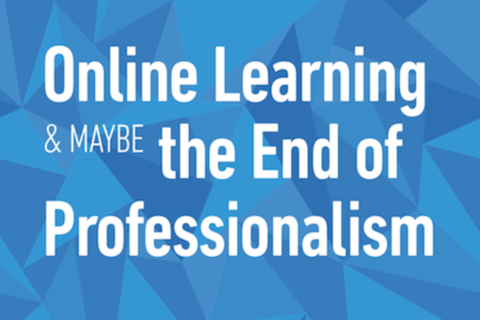
Online learning has been around long enough that the effects on the workplace are starting to become clear. Anyone with patience and an internet connection can advance their career and skill set. For developers, web foru…
Advanced
Presenters
Jeff Diana, Luca Bonmassar, Nikhil Abraham, Vivienne Ming
After a startup wins a $50,000 investment to move to Austin and the 10 best Austin startups compete for the top spot, you can meet them and mingle with other entrepreneurs and investors. The drinks are on us! Please reg…
Intermediate
Presenters
Gordon Daugherty
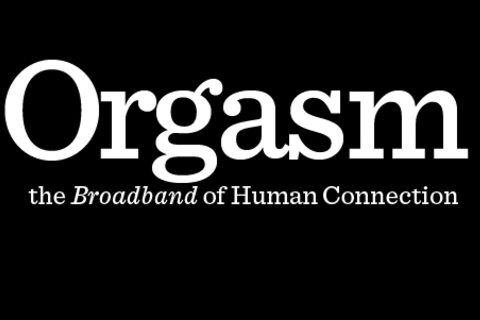
Orgasm is different than what we've been taught. What is Orgasm? Science shows Orgasm is a vital nutrient to the body. It activates the parasymapthetic and the sympathetic nervous systems, simultaneously. As a result, …
Intermediate
Presenters
Nicole Daedone

Poster Designer meet up will consist of local and international artists and designers getting together to hang out and network. Designers of all mediums and skill level are encouraged to attend. Free screen printed poste…
Beginner
Presenters
Bobby Dixon

Estimating digital & software projects has long been considered a dark art. Many luminaries have written books, articles, blog posts, and rants on the subject. Steve McConnell, the guru of project estimation, has suggest…
Intermediate
Presenters
Brett Porter, Deborah Hanamura, Joshua Philips, Trevor Kale
I will talk about the steps startups can take to raise venture capital quickly and successfully. Our startup, Speek, raised $2.8m in less than 2 months - and outside Silicon Valley. I have 8 steps that are crucial to rai…
Intermediate
Presenters
Konrad Waliszewski
Following on the success of the 2012 and 2013 Social Health Startup Bootcamp (#SXSH), 2014 will mark the 3rd consecutive year of the event that provides education, inspiration, and funding advice for (social) health tech…
Intermediate
Presenters
Dwayne Spradlin, Jody Holtzman, Katya Hancock, Thomas Tsang

Quickly connect with an entire room of LGBT professionals in various fields and backgrounds from all over the country! Speed-networking is your opportunity to have multiple one-on-one brief introductions, talk about your…
Beginner
Presenters
Christopher Wood
Want to know how LeBron beats Kevin Durant off the court? Join us at the MVPindex Sports Lounge to engage with a platform that measures real-time digital brand value of athletes, teams and leagues and learn how top athle…

What's it like starting a company with your significant other? Your work and home life will lose separation. Some VCs won't fund you as a matter of principle. But at the same time, you get to obsess about work together, …
Beginner
Presenters
Alexander Moore, Aye Moah, Derek Langton, Mendel Chuang
Moderated by Bravo’s Andy Cohen, host of Watch What Happens Live, this panel will bring together two of YouTube’s hottest stars—Tyler Oakley and Grace Helbig—with BuzzFeed’s EVP of Video, Ze Frank, to spark a discussion …
Beginner
Presenters
Andy Cohen, Grace Helbig, Tyler Oakley, Ze Frank

Experience CATALIN, the art of Charles Long, plus hear a talk by “dark ecology” theorist Timothy Morton, an inspiration for Long’s work.……
Head to the beautiful Intercontinental Stephen F. Austin Hotel Terrace Bar for nightly happy hours. Conveniently located directly next door to the Paramount Theatre, this is the perfect spot to meet up with friends for a…
Accelerator programs are here to stay. Or are they? As the startup ecosystem evolves and as mainstream industries incorporate technology in everyday systems and products, what is the best way to support early-stage busin…
Intermediate
Presenters
Paul Smith, Tristan Watson

It is projected that by 2050 Africa's GDP will be bigger than the GDPs of the U.S and China combined. The continent as a whole has been growing at over 5% annually for close to a decade. This trend if maintained means th…
Beginner
Presenters
Frank Aswani, John Kidenda, Rick Reeder, Takalani Malivha
What do iOS, Android, and the Internet all have in common? They were all built using source code editors driven by talented people. It’s often said that the editor is the most powerful tool in the arsenal of a develope…
Advanced
Presenters
Jonathan Dunlap
Mobile Game User Acquisition is becoming a virtual war zone with the App Store, Google Play and other marketplaces proving to be a vicious battle ground where the strongest survive and reap billions of dollars in revenue…
Intermediate
Presenters
Jo Wightman

In the near future, humans will increasingly rely on robots to manage agriculture, infrastructure, transportation, healthcare, manufacturing and security. Advanced human-robot interaction will transform industries and ch…
Intermediate
Presenters
Dawn Tilbury, Elena Messina, Heather Knight, Henrik Christensen
Many individuals at SXSW stand at the intersection of for-profit, brands, social good startups and nonprofits. This is a session for those like minded folks to come together and talk about what the future holds for the m…
Intermediate
Presenters
David Neff

A panel of highly successful digital media professionals (who in no way set out to be highly successful digital media professionals) discuss their views on career paths, success, failure, and professional satisfaction. …
Intermediate
Presenters
Laura Lee, Lauren Zalaznick, Michael Slaby, Steven Waldman

You have a breakthrough concept. Soundboarding with advisers yields a patronizing “good luck with that” and pleas to pursue something more practical. Time to re-start and the place to start is at the end, where success h…
Intermediate
Presenters
Peter Burrows
In the era of Kickstarter, we have become trained to believe being the first and fastest to market is better than patiently developing an idea. It seems the days of five years of toil in a garage are gone. This “early bi…
Beginner
Presenters
Austin Carr, Boris Sofman, Matt Rogers

Twitter changes everything. That’s especially true for events. So do smart phones, tablets, Instagram, YouTube, Vine, and lots of other new tools and technologies. Please join us for our 3rd annual Interactive Core Conve…
Intermediate
Presenters
Brian Duggan, Tom Spano
5:10 PM
Chris Nodder will appear at the SX Bookstore to sign copies of "Evil by Design: Interaction Design to Lead Us into Temptation".……
Presenters
Chris Nodder
5:15 PM
My car gives me feedback on my driving. My bracelet helps me understand my sleep patterns. Smartphone apps monitor my mood, diet and social life. We're entering a Quantified Self revolution, as every product we interact …
Intermediate
Presenters
Ben Essen
Last year, we spent the equivalent of 1 million years watching cat videos online, uploaded ½ million different versions of Harlem Shake and took more pictures of what we ate for dinner last night than who we ate dinner w…
Intermediate
Presenters
Abigail Posner
5:20 PM
Margot Bloomstein will appear at the SX Bookstore to sign copies of "Content Strategy at Work: Real-world Stories to Strengthen Every Interactive Project"……
Presenters
Margot Bloomstein
5:30 PM
In the constantly changing world of video games, there is only one constant: gamers ultimately define the path forward. Join this discussion about current and future gaming platforms and the consumer behaviors that will …
Presenters
Aaron Davies, Brandon Barber, Dan Morris, Jeremy Strauser
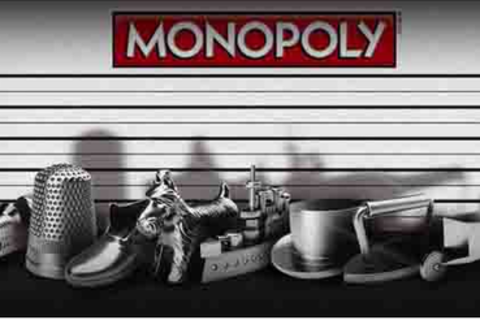
Created in 1935 on a kitchen table, Monopoly has been played more than 1B times, available in 111 countries in 43 languages and sold more than 275M games. The goal was to reinvigorate the fan base, utilize a medium to c…
Beginner
Presenters
Victor Lee
5:40 PM
Beth Kanter will appear at the SX Bookstore to sign copies of "Measuring the Networked Nonprofit: Using Data to Change the World ".……
Presenters
Beth Kanter
5:45 PM
The theory of the traditional purchase funnel has been debunked. And consumers now believe each other more than advertising. As such, a new breed of marketer is emerging. One with the competence to leverage new tools and…
Advanced
Presenters
Chris Kneeland
Artificial intelligence has advanced to the point where it’s no longer just science fiction. Computers now perform intelligent tasks such as collect bridge tolls, drive cars, deliver newspapers, make and serve food, and …
Intermediate
Presenters
George John
6:00 PM

Connect with fellow SXsports enthusiasts while enjoying tasty libations and good food at the SXsports Kick-Off reception celebrating the launch of SXsports.……

Enjoy drinks, conversation, and entertainment with the team from Bulltiger Productions, Austin’s most innovative Transmedia company. SXSW Gaming Happy Hour presented by Bulltiger Productions is open to the public with f…
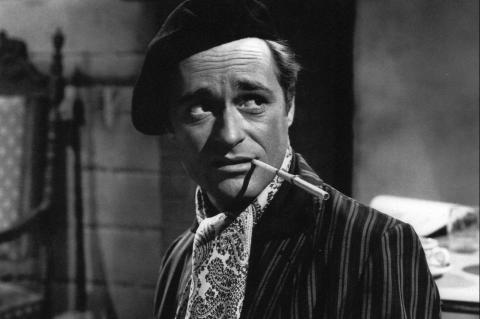
Dick Miller is the last of the great American character actors. Whether sharing the screen with Nicholson, DeNiro, Schwarzenegger or The Ramones, Dick has been stealing scenes since his screen debut in 1955. He has worke…
Kick off SXSW and recharge in a space conducive to networking with like-minded creative individuals. Whether you’re a start-up or wanting to enhance your business, our apps can help. Discover Zoho……
6:15 PM
The Safe Harbor Room is a place for people in recovery to meet during SXSW. The sessions are informal and supportive. Conferences and large gatherings can be a challenging atmosphere for those who choose sobriety. All ar…
6:30 PM
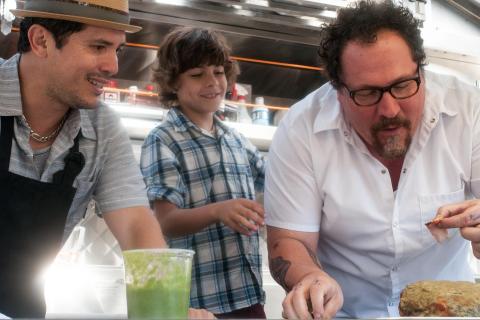
When Chef Carl Casper (Jon Favreau) suddenly quits his job at a prominent Los Angeles restaurant after refusing to compromise his creative integrity for its controlling owner (Dustin Hoffman), he is left to figure out wh…

Axel, Jonathan and Ana live together in a house that seems like a bunker in a post-catastrophic world. Outside is a threatening landscape. Once they were a perfect love triangle, with strong bonds of friendship, but toda…
With the rise of mobile gaming, many traditional paper games have made the transition to the digital space. Stone Blade Entertainment began as a traditional game company with their hit deckbuilding game Ascension, and ha…
Presenters
Brian Kibler, Justin Gary
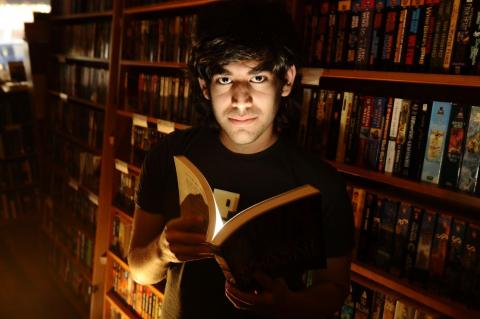
The story of programming prodigy and information activist Aaron Swartz. From Swartz's help in the development of RSS to his co-founding of Reddit, his fingerprints are all over the internet. But it was Swartz's groundbre…
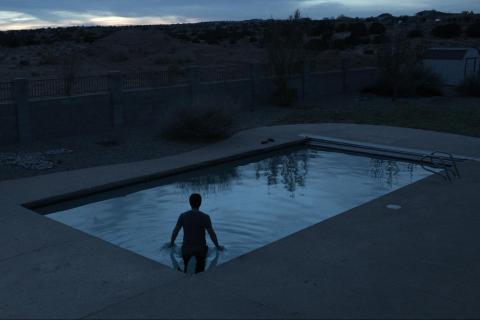
In "Things People Do", Bill Scanlin loses his job and, unable to tell his wife Susan for fear of losing his family, embarks on a life of crime. He befriends a detective, Frank, who has chosen to uphold the law for a livi…
6:45 PM

"Take Care" is a comedy about a woman (Leslie Bibb), who returns home from the hospital after getting hit by a car, only to realize no one wants to take care of her. After being brushed off by her sister, (Nadia Dajani)…
7:00 PM
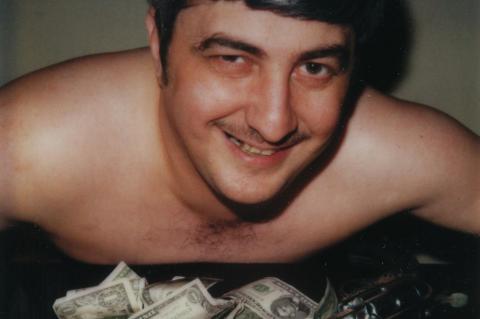
In 1972, John Wojtowicz attempted to rob a Brooklyn bank to pay for his lover’s sex change operation. The story was the basis for the film "Dog Day Afternoon". "The Dog" captures John, for the first time, telling his sto…

Sean, a retired literature professor and civic activist, writes a letter to his estranged son, Tennessee, a ranch hand. Tennessee is uncertain how to respond, but knowing he should see his aging father, he decides to go …

Fiercely independent and in her mid-30s, Ronah works as a sexual surrogate in New York City, teaching her clients the very thing they fear most -- to be intimate. Her life unravels when she starts working with a volatile…

DIG Director: Toby Halbrooks A young girl makes a connection with her father, after watching him dig a hole in their backyard. EASY Director: Daniel Laabs A character study about the relationship between two brothers, o…
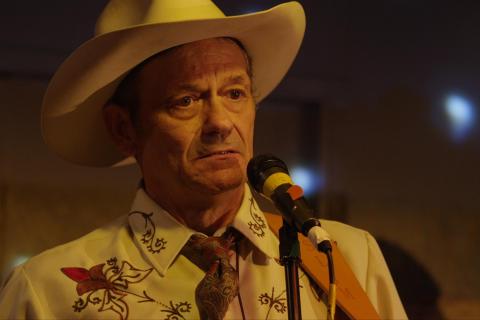
Jack Hand is a two-bit hustler and bottom-rung music manager with a questionable reputation. His dwindling social circle is made up of his only remaining clients; a hip-hop artist and an indie rock band. Jack's next be…
7:30 PM
When telling stories, videogames often copy their “older brother” film and use cinematic sequences to advance the plot. These moments in videogames are often passive experiences the player is tempted to skip over to retu…
Presenters
Josh Larson, Ryan Green
8:00 PM
Kick off Interactive with RAPP and friends at this exclusive soirée! Network with industry brains and tech-nuts over cocktails http://rapp.com……

Join us and join.me at the Palmer Events Center on Friday evening, March 7 to get SXSW Interactive 2014 underway with an unforgettable evening. #bettermeetingsforall……

ACL Live at The Moody Theatre transforms into an unforgettable party featuring live music by Local Natives, preceded and followed by a dance party hosted by Austin’s own DJ Chicken George. Don’t miss out on what will be …
8:30 PM
Leading the Geek Rock revolution, The Plaid Jackets are a high energy band with Brandon Adkins on lead guitar and vocals and Matt Johannesen on drums. Their mission is to bring geeks and rockers from around the universe …
Presenters
Brandon Adkins, Matt Johannesen
8:45 PM
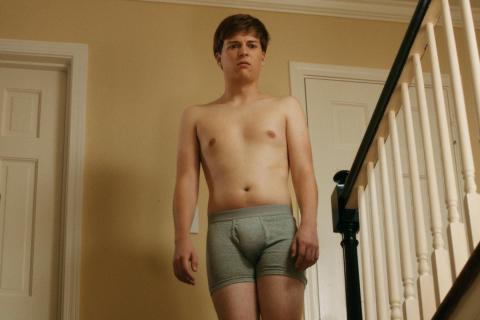
Rob is facing the biggest day of his life. He needs to nail a college interview ensuring his admittance to his parents’ beloved alma mater, keep his cool when life-long crush Angela (nicknamed ‘After School Special’ for …
9:00 PM

She experiments with vegetables while masturbating and thinks body hygiene is greatly overrated. She shocks those around her by speaking her mind in a most unladylike manner on topics that many people wouldn’t dare to th…
9:30 PM

Dean is an inventive yet unorthodox scientist who uses his technical expertise to create grand romantic gestures for his girlfriend Lana. After an anniversary weekend goes terribly wrong, a guilt-ridden Dean is spurred t…

Punk-rocker turned suburban mom, Kelly, is nostalgic for a life she can no longer have and uncertain of a future she doesn’t yet fit in. Seventeen-year-old Cal is frustrated at his lack of control over the hand he's been…
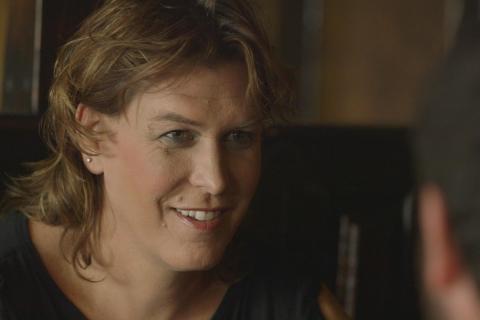
Former U.S. Navy Seal Chris Beck embarks on a new mission as Kristin Beck. Kristin’s journey in search of the American ideals that she protected: life, liberty and the pursuit of happiness have a whole new meaning as sh…
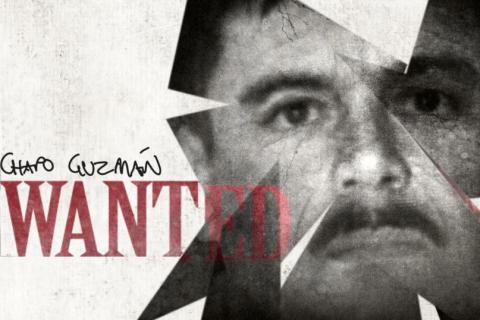
From the Producer of ‘Searching for Sugarman’, The Legend of Shorty goes after the leader of the biggest drugs cartel in history. Spurred on by specially composed songs by Jackson Scott, and Tyrone Power as Zorro, the …
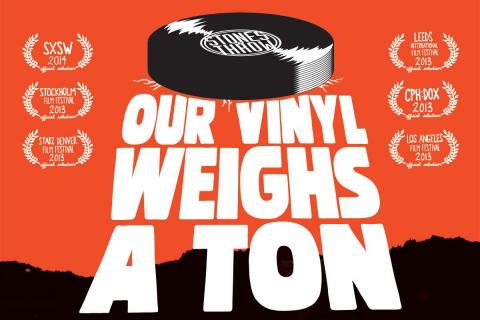
"Our Vinyl Weighs A Ton" is a feature-length documentary about avant-garde Los Angeles-based record label Stones Throw Records. Under the direction of founder and world-renowned DJ Peanut Butter Wolf, Stones Throw has co…
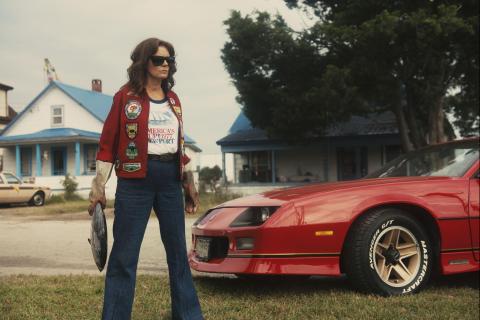
The year is 1985. Rad Miracle is a shy 13-year-old white kid who's obsessed with two things: ping pong and hip hop. During his family's annual summer vacation to Ocean City, Maryland, Rad makes a new best friend, experie…
9:45 PM
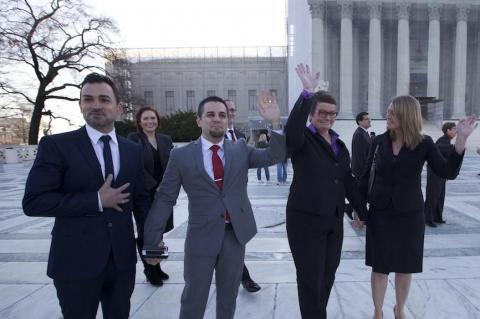
A behind-the-scenes look inside the historic case to overturn California's ban on same-sex marriage. The high-profile trial first makes headlines with the unlikely pairing of Ted Olson and David Boies, political foes who…
10:00 PM
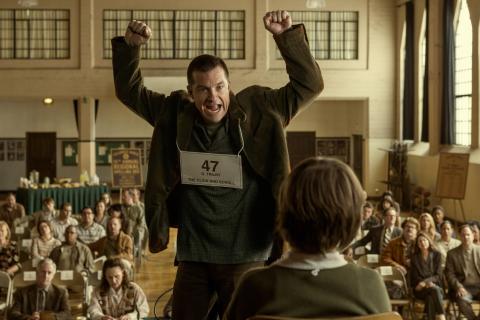
Jason Bateman ("Identity Thief") makes his feature directorial debut with the subversive comedy Bad Words. In the movie, he stars as Guy Trilby, a 40-year-old who finds a loophole in the rules of The Golden Quill nation…

**Extended Q&A to follow screening "COSMOS: A SpaceTime Odyssey" is hosted by renowned astrophysicist Dr. Neil deGrasse Tyson and written by Carl Sagan's collaborators on the legendary original series, Ann Druyan and St…
Head to mobi for an authentic Austin after-party with homegrown music, drinks, and food on our 16th floor patio.……

Kick off SXSW Film at the Opening Party presented by A+E Networks, home of A+E, Lifetime, HISTORY and A+E IndieFilms. There’s no better place to network and connect with your friends on the first night of the festival. G…
11:45 PM

Young newlyweds Paul (Harry Treadaway) and Bea (Rose Leslie) travel to remote lake country for their honeymoon where the promise of private romance awaits them. Shortly after arriving, Paul finds Bea wandering and disor…
11:55 PM
Wanting to unwind after hitting the nightly parties or spending the day in the theaters? Swing back by the InterContinental Bar to check in on the action.……
11:59 PM
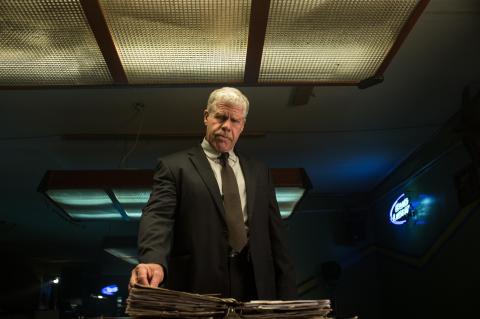
A cryptic phone call sets off a dangerous game of risks for Elliot, a down-on-his luck salesman. The game promises increasing rewards for completing 13 tasks, each more sinister than the last.……
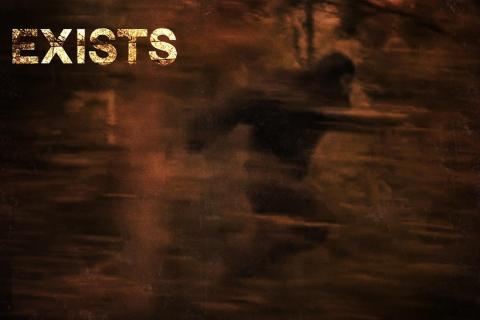
When brothers Brian and Matt Tover secretly sneak out to their Uncle's long abandoned cabin in East Texas for a party weekend with their friends, they find themselves stalked by the legendary Sasquatch. Cut off from the …
















